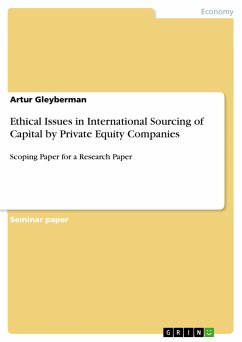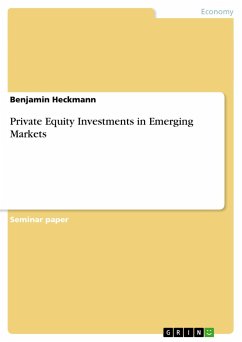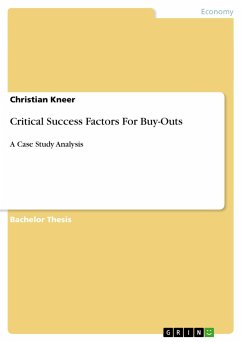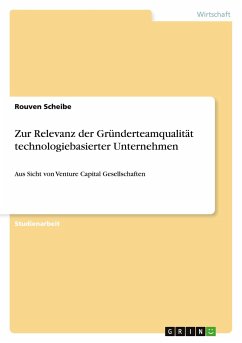Seminar paper from the year 2009 in the subject Business economics - Business Management, Corporate Governance, grade: 70% very good, Nottingham Trent University, language: English, abstract: "After buying out companies, they load them with debt, take out the cash, and then sell the emaciated carcass a few years later" (Schiller in Bendell and Cohen, 2007:8). In the context of global sourcing and ethical issues, this quotation could be easily associated with the well known problem of the exploitation of developing countries by western corporations, here however, these words refer to Private Equity (PE) companies acting in the developed countries. Franz Müntefering, the head of German Social Democrat Party, called PE companies "locusts", who "don't waste any thoughts on the people whose jobs they destroy" (Spiegel-Online, 2006). The image of locusts highlights the negative image of PE and implies its destructive effect on employment and thus the economy of a country. This paper intends to explore how a single multinational PE company can influence the labour market of a country by buying out the shares of local companies.David Rubenstein, the co-founder and managing director of The Carlyle Group, one of the world's largest private equity firms, indicated an end to the golden era of PE and the beginning of a new era, to which PE needs to adapt. He put the PE industry's image problems at the top of the challenges list which the industry has to deal with. The less-than-favourable public image is followed by threats of higher taxes and other legislative and regulatory constraints, protectionism in countries where investments are targeted and finally declining investment returns (McConnell, 2007).This view of public image seems to be increasingly important for PE companies, who have been severely criticised for their opaque business practices (Grote, 2007). Therefore the purpose of this paper is to describe and analyse the manner Artur Gleyberman in which a multinational PE company deals with the arising criticism concerning their methods of sourcing capital in order to improve their public image.








